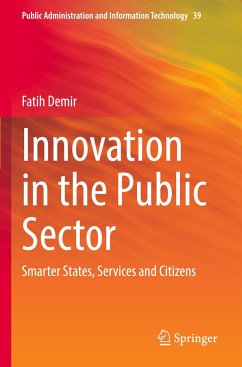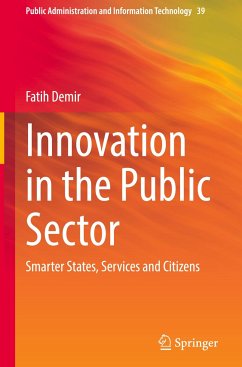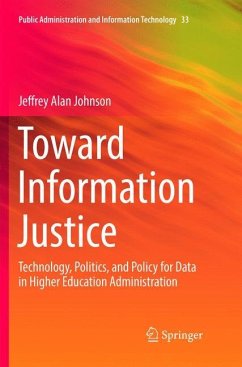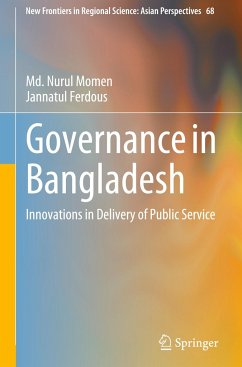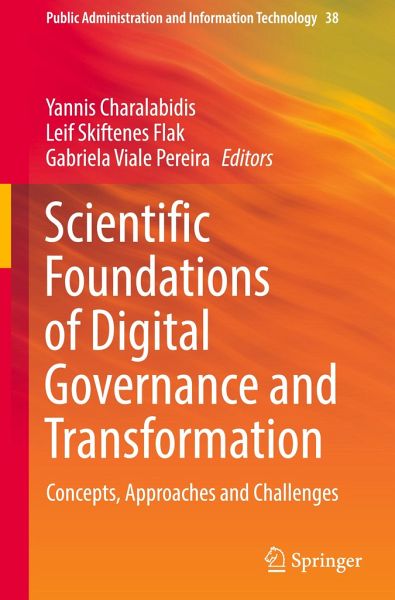
Scientific Foundations of Digital Governance and Transformation
Concepts, Approaches and Challenges
Herausgegeben: Charalabidis, Yannis; Flak, Leif Skiftenes; Viale Pereira, Gabriela

PAYBACK Punkte
49 °P sammeln!
This book provides the latest research advancements and findings for the scientific systematization of knowledge regarding digital governance and transformation, such as core concepts, foundational principles, theories, methodologies, architectures, assessment frameworks and future directions. It brings forward the ingredients of this new domain, proposing its needed formal and systematic tools, exploring its relation with neighbouring scientific domains and finally prescribing the next steps for laying the foundations of a new science. The book is structured into three main areas. The first s...
This book provides the latest research advancements and findings for the scientific systematization of knowledge regarding digital governance and transformation, such as core concepts, foundational principles, theories, methodologies, architectures, assessment frameworks and future directions. It brings forward the ingredients of this new domain, proposing its needed formal and systematic tools, exploring its relation with neighbouring scientific domains and finally prescribing the next steps for laying the foundations of a new science.
The book is structured into three main areas. The first section focuses on contributions towards the purpose, ingredients and structure of the scientific foundations of digital transformation in the public sector. The second looks at the identification and description of domain's scientific problems with a view to stabilizing research products, assessment methods and tools in a reusable, extendable and sustainable manner. The third envisions apathway for future research to tackle broader governance problems via the applications of information and communication technologies in combination with innovative approaches from neighbouring scientific domains.
Contributing to the analysis of the scientific perspectives of digital governance and digital transformation, this book will be an indispensable tool for students, researchers and practitioners interested in digital governance, digital transformation, information systems, as well as ICT industry experts and policymakers charged with the design, deployment and implementation of public sector information systems.
The book is structured into three main areas. The first section focuses on contributions towards the purpose, ingredients and structure of the scientific foundations of digital transformation in the public sector. The second looks at the identification and description of domain's scientific problems with a view to stabilizing research products, assessment methods and tools in a reusable, extendable and sustainable manner. The third envisions apathway for future research to tackle broader governance problems via the applications of information and communication technologies in combination with innovative approaches from neighbouring scientific domains.
Contributing to the analysis of the scientific perspectives of digital governance and digital transformation, this book will be an indispensable tool for students, researchers and practitioners interested in digital governance, digital transformation, information systems, as well as ICT industry experts and policymakers charged with the design, deployment and implementation of public sector information systems.







